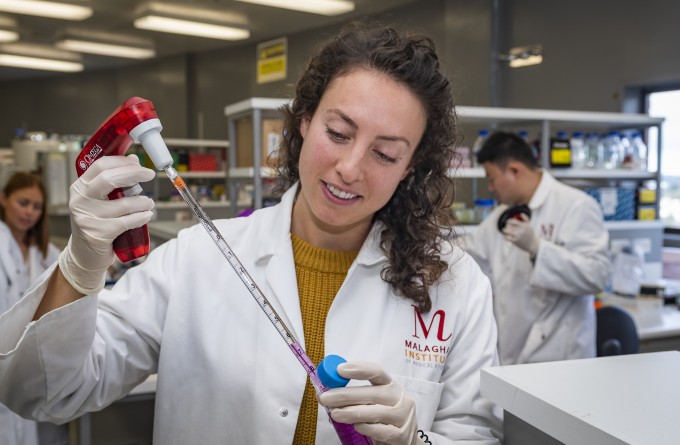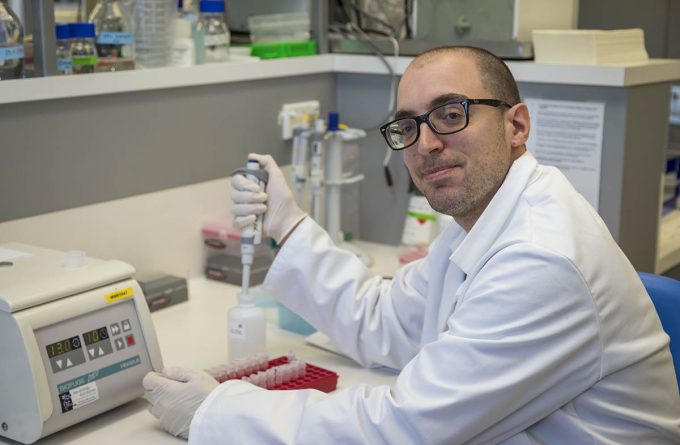6 July 2021
New research by the Malaghan Institute’s translational immunology team has identified a key gene that, in the right acidic conditions, can stop T-cells from causing excessive inflammation in the skin.

T-cells are a type of immune cell that help recognise antigens – a key condition for initiating an immune response. Their main role is to cause inflammation to help fight an infection.
For most people, their T-cells behave as they should. But for those with inflammatory conditions, often their T-cells activate or turn on when they shouldn’t, kicking off the immune response and causing harmful inflammation. Ensuring that T-cells behave as they should, especially in the skin, is important in preventing the development of inflammatory diseases such as eczema and psoriasis.
“There are many factors that determine whether a cell should activate,” says Dr Gasser. “Things like temperature, the presence of chemical signals, salinity. The body’s pH – or acid-base – balance is just one of many factors, but for T-cells in the skin it’s an important one.
“Many cells, including T-cells, rely on the gene GPR65 to determine the pH of their environment. GPR65 codes for a protein that sits on the surface of the cell which feeds information back on how acidic or basic the surrounding environment is. For T-cells in the skin, if the pH is acidic, the protein sends signals back to the cell to suppress activation.”
In the paper, ‘pH and Proton Sensor GPR65 Determine Susceptibility to Atopic Dermatitis,’ published in the Journal of Immunology, Dr Gasser’s team found that for many people suffering eczema and other allergic skin conditions, a deficiency in their GPR65 gene means their T-cells aren’t as good at determining the pH of their environment, causing them to activate when they shouldn’t, giving rise to inflammation.
“We’ve found in both preclinical and clinical studies that for those with the defect in their GPR65 gene,
their immune cells are blind to their extracellular pH environment, making it much easier for their T-cells to activate.”
Healthy skin typically has a slightly acidic pH, around 5.5. However, it becomes more neutral (or basic) in diseases like atopic dermatitis, more commonly known as eczema. Many sufferers are prescribed skincare treatments for their conditions to reset this imbalance, lowering the pH of the skin to a more healthy range. This research supports this approach, suggesting that one of the reasons these skincare products work is by making it harder for T-cells to activate in the skin and cause the hallmark inflammation associated with these diseases.
Moving forward, Dr Gasser and his team hope to explore this discovery further to determine exactly how GPR65 functions across different types of immune cells and whether this information can lead to new targeted treatments for atopic disease.
Related articles

Location, location, location: study finds where MAIT cells live may determine their role in allergic disease
12 February 2024

Health Research Council to fund clinical study investigating the skin’s role in initiating allergic disease
28 June 2023

In Focus: From tiger conservation to parasites and the allergy epidemic
10 May 2023

Allergic disease research update for Allergy NZ - Dr Kerry Hilligan
30 March 2023

In Focus: How gene-editing technology is pushing the boundaries of exploration into the immune system
16 January 2023

In Focus: Uncovering the mysteries of asthma and allergy development
12 December 2022
